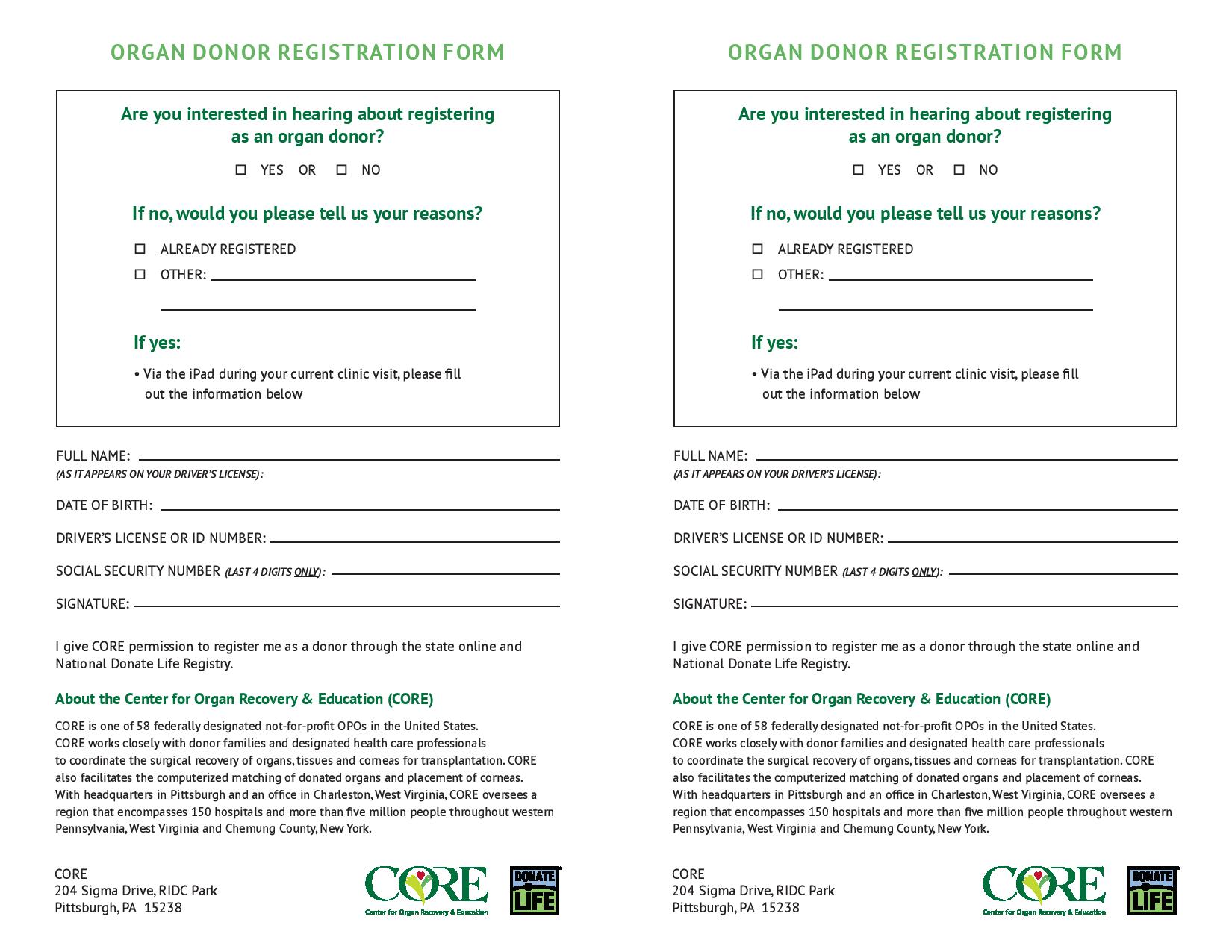A Pilot Study of Organ Donor Registration among Persons Living with HIV (PLWH)
1UPMC, Pittsburgh, PA, 2Division of Infectious Diseases, UPMC, Pittsburgh, PA, 3Center for Organ Recovery and Education, Pittsburgh, PA
Meeting: 2019 American Transplant Congress
Abstract number: D230
Keywords: Donation, Outpatients, Patient education
Session Information
Session Name: Poster Session D: Non-Organ Specific: Public Policy & Allocation
Session Type: Poster Session
Date: Tuesday, June 4, 2019
Session Time: 6:00pm-7:00pm
 Presentation Time: 6:00pm-7:00pm
Presentation Time: 6:00pm-7:00pm
Location: Hall C & D
*Purpose: Under the HIV Organ Policy Equity Act (HOPE Act), persons living with HIV (PLWH) may receive organ transplants from HIV-infected donors. However, awareness of the HOPE Act among PLWH remains low, as do rates of organ donor registration. Our study aimed at increasing the rates of organ registration and assessing attitudes toward organ donation among PLWH at an HIV outpatient clinic.
*Methods: This was a prospective, qualitative survey conducted from July through October 2018 among PLWH presenting for care at a Ryan White-funded outpatient HIV clinic in an academic medical center. CORE, an organ procurement organization, provided the organ donor registration cards (see figure). Staff gave patients CORE cards at check-in and asked patients to indicate if they were interested in learning more about organ donation (yes/no). Staff asked interested patients to complete the basic CORE registry card. Clinicians or staff addressed any questions the patients may have had regarding donor registration. The CORE cards included space that allowed patients to express their attitudes regarding organ donation. CORE staff uploaded information obtained via the completed CORE card into the national registry without any linkage to their HIV status. The institutional review board at the authors’ institution approved the study.
*Results: Nine hundred ninety-one unique patients with HIV were seen at PACT for primary care visits during the study period, 760 of whom were provided with CORE cards. Of these, 88% (670/760) returned the cards, of which 649 were fully completed. Nine percent (59/649) of patients were already registered. Of the remaining 590 patients, 44% (259/590) expressed interest in organ donor registration, while 54% (321/590) did not. All 590 of these cards were delivered to CORE. Of these 259 patients, one opted to defer registration and five did not fill out the form appropriately. Therefore, 43% (253/590) of patients completed the process required for organ donor registration. Among the 321 patients who declined to discuss organ donation, 63% (201/321) did not provide an explanation. Of the patients who provided an explanation for declining to register, 19% (23/120) listed their HIV status as a reason not to register as an organ donor. Of these, 57% (13/23) cited HIV-infected status alone, whereas 43% (10/23) cited the presence of HIV and other comorbidities. Other reasons were lack of interest (48%, 40/120), the need for more time to consider organ donation (8%, 9/120), non-HIV comorbidities (3%, 3/120), religious beliefs (4%, 5/120), and distrust of the healthcare system (1%, 1/120).
*Conclusions: Our organ donor registration rates increased from baseline (9% to 43%), with minimal effort from the clinic staff and physicians. Integrating donor registration cards into outpatient HIV clinics is a pragmatic and feasible way of increasing awareness and donor registration rates among PLWH. Knowledge gaps among PLWH persist. HIV is still perceived as a contraindication for donation. Future efforts should focus on educating PLWH about the HOPE Act and on using the primary care setting to promote organ donor registration.
To cite this abstract in AMA style:
Bhamidipati D, Veldkamp P, Despines L, Sullivan C, Stuart S, McMahon D, Haidar G. A Pilot Study of Organ Donor Registration among Persons Living with HIV (PLWH) [abstract]. Am J Transplant. 2019; 19 (suppl 3). https://atcmeetingabstracts.com/abstract/a-pilot-study-of-organ-donor-registration-among-persons-living-with-hiv-plwh/. Accessed March 3, 2026.« Back to 2019 American Transplant Congress

